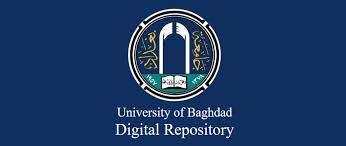الإيمان باليوم الآخر وأثره في بناء شخصية المسلم
DOI:
https://doi.org/10.51930/jcois.21.74.0077الكلمات المفتاحية:
أثر، اليوم الاخر، شخصية، المسلمالملخص
تعد عقيدة الإيمان باليوم الآخر ركن من أركان الإيمان وان عقيدة البعث والحساب هما جزء من هذا اليوم.
وان الإيمان باليوم الآخر يجعل الإنسان في رقابة دائمة على نفسه، فهذه الرقابة تخلق في هذا الإنسان السعادة والحياة الكريمة ويزهد في الدنيا ويبتعد عن كل الرذائل والتحلي بكل الفضائل.
وفي الجهة الأخرى نجد الإنسان الذي لا يؤمن بهذا اليوم لا يقف أمام عينيه أي شيء يمنعه من فعل المظالم والإفساد في الأرض. فان عقيدة الإيمان باليوم الآخر تكفي وحدها لإيجاد إطار أخلاقي يتحلى به كل أبناء المجتمع، فهي تخلق في هذا المجتمع العزة والكرامة والصبر على المصائب وتخلق في أبناء المجتمع المثابرة على العمل الصالح وترك الرذائل، وهذه الأعمال كي يكتب لها النجاح في الدنيا والفلاح في الآخرة فلا بد ان يكون ذلك بالانقياد إلى أوامر الله تعالى والابتعاد عما نهى عنه، وبهذه الأعمال يكون قلب الانسان قد ملئ بالإيمان والسكينة بخلاف ما يكون عليه المشرك.
فاليوم أصبحت الحاجة ملحة إلى إثارة مثل هذه الموضوعات المهمة، فهي التي تنظم سلوك الإنسان وكل ما زاد الإيمان بها جاءت النتائج الايجابية على ارض الواقع وان عقيدة الإيمان باليوم الآخر هي الموجه لأفكار الإنسان في تصرفاته، فلا يمكن التخلي عنها في أي شأن من شؤون الحياة.
ان الدافع الأساسي في إثارة هذا الموضوع هو ما حصل من أحداث دامية راح ضحيتها آلاف الأبرياء، فنرى أبناء البلد الواحد يتقاتلون فيما بينهم وأبناء المنطقة الواحدة بل حتى الإخوة فيما بينهم زيادة على حبه وحب الرئاسة والتسلط على الآخرين، فإن الزهد في المناصب والكراسي من الأمور الثقيلة على النفس البشرية. فاليوم قد أصبح من الضروري جداً تذكير الناس بعقيدتهم التي ابتعدوا عنها كل البعد وأصبح الناس في هم الدنيا ونسوا هم الآخرة.
المراجع
• بعد القرآن الكريم.
سير إعلام النبلاء/ شمس الدين محمد بن احمد بن عثمان الذهبي، ط2، مؤسسة الرسالة، بيروت، 1402هـ.
شرح صحيح مسلم للامام النووي/ محيي الدين ابي بكر زكريا بن شرف الدين النووي الشافعي، ت 631-667، دار القلم، بيروت، لبنان، ط1، 1407هـ - 1987م.
رياض الصالحين للامام ابي زكريا يحيى بن شرف النووي الدمشقي ت 676هـ، مطبعة انوار دجلة، بغداد، البتاوين، 1424هـ - 2003م.
التوبة/ تأليف علي بن هبة الله الشافعي، دار النشر، دار الاوقاف والشؤون الدينية، دبي، تحقيق محمد مطيع الحافظ.
مختصر ابن كثير.
الرحيق المختوم/ صفي الرحمن المباركفوري، ط1، 1424هـ - 2003م، مطبعة انوار دجلة، بغداد، البتاوين.
منهاج المسلم/ جابر الجزائري، ط8، 1976م.
صفوة التفاسير/ محمد علي الصابوني، ط9 ـ القاهرة.
التواضع والخمول/ تأليف ابي بكر عبد الله بن محمد بن عبيد ابي الدنيا القرشي البغدادي/ دار الكتب العلمية، بيروت، 1409هـ - 1989م، ط1، تحقيق، محمد عبد القادر احمد عطا.
اسلامنا / سيد سابق، بيروت، لبنان، ط2، 1982.
تفسير القرآن العظيم لابن كثير، دار المعرفة، بيروت، لبنان، 1407هـ - 1987م.
حاشية الصاوي على الجلالين.
احياء علوم الدين للامام الغزالي/ ت505، دار الكتب العلمية، بيروت، لبنان، ط1، 1406هـ - 1996م.
شرح العقيدة الطحاوية/ تأليف القاضي علي بن علي بن محمد ابي العز الدمشقي ت792هـ، تحقيق عبد الله بن عبد المحسن التركي/ شعيب الارنؤوط، مؤسسة الرسالة.
ميزان العمل للغزالي/ كتب هوامشه احمد شمس الدين/ دار الكتب العلمية، بيروت، لبنان / ط1، 1989.
سيرة ابن هشام/ ابو محمد عبد الملك بن هشام، ت 213-218، شركة مطبعة مصطفى الحلبي، مصر، ط2، 1375-1955.
al-Maṣādir wa-al-marājiʻ
• baʻda al-Qurʼān al-Karīm
Siyar Iʻlām al-nubalāʼ / Shams al-Dīn Muḥammad ibn Aḥmad ibn ʻUthmān al-Dhahabī, ṭ2, Muʼassasat al-Risālah, Bayrūt 1402h.
. sharḥ Ṣaḥīḥ Muslim lil-Imām al-Nawawī / Muḥyī al-Dīn Abī Bakr Zakarīyā ibn Sharaf al-Dīn al-Nawawī al-Shāfiʻī, t 631-667, Dār al-Qalam, Bayrūt, Lubnān, Ṭ1, 1407h-1987m
. Riyāḍ al-ṣāliḥīn lil-Imām Abī Zakarīyā Yaḥyá ibn Sharaf al-Nawawī al-Dimashqī t 676h, Maṭbaʻat Anwār Dijlah, Baghdād, al-battāwīn, 1424h-2003m.
. al-Tawbah / taʼlīf ʻAlī ibn Hibat Allāh al-Shāfiʻī, Dār al-Nashr, Dār al-Awqāf wa-al-Shuʼūn al-dīnīyah, Dubayy, taḥqīq Muḥammad Muṭīʻ al-Ḥāfiẓ.
. Mukhtaṣar Ibn Kathīr.
. al-Raḥīq al-makhtūm / Ṣafī al-Raḥmān al-Mubārakfūrī, Ṭ1, 1424h-2003m, Maṭbaʻat Anwār Dijlah, Baghdād, al-battāwīn.
. Minhāj al-Muslim / Jābir al-Jazāʼirī, ṭ8, 1976m.
. Ṣafwat al-tafāsīr / Muḥammad ʻAlī al-Ṣābūnī, ṭ9 al-Qāhirah.
. altwāḍʻ wa-al-khumūl / taʼlīf Abī Bakr ʻAbd Allāh ibn Muḥammad ibn ʻUbayd Abī al-Dunyā al-Qurashī al-Baghdādī / Dār al-Kutub al-ʻIlmīyah, Bayrūt, 1409H-1989m, Ṭ1, taḥqīq, Muḥammad ʻAbd al-Qādir Aḥmad ʻAṭā.
. aslāmnā / Sayyid sābiq, Bayrūt, Lubnān, ṭ2, 1982.
. tafsīr al-Qurʼān al-ʻAẓīm li-Ibn Kathīr, Dār al-Maʻrifah, Bayrūt, Lubnān, 1407h-1987m.
. Ḥāshiyat al-Ṣāwī ʻalá al-Jalālayn.
. Iḥyāʼ ʻulūm al-Dīn lil-Imām al-Ghazālī / t 505, Dār al-Kutub al-ʻIlmīyah, Bayrūt, Lubnān, Ṭ1, 1406h-1996m
. sharḥ al-ʻaqīdah al-Ṭaḥāwīyah / taʼlīf al-Qāḍī ʻAlī ibn ʻAlī ibn Muḥammad Abī al-ʻIzz al-Dimashqī t 792h, taḥqīq ʻAbd Allāh ibn ʻAbd al-Muḥsin al-Turkī / Shuʻayb alārnʼwṭ, Muʼassasat al-Risālah.
. mīzān al-ʻamal lil-Ghazzālī / kutub hawāmishahu Aḥmad Shams al-Dīn / Dār al-Kutub al-ʻIlmīyah, Bayrūt, Lubnān / Ṭ1, 1989.
. sīrat Ibn Hishām / Abū Muḥammad ʻAbd al-Malik ibn Hishām, t 213-218, Sharikat Maṭbaʻat Muṣṭafá al-Ḥalabī, Miṣr, ṭ2, 1375-1955.
.jpg)
2.png)







